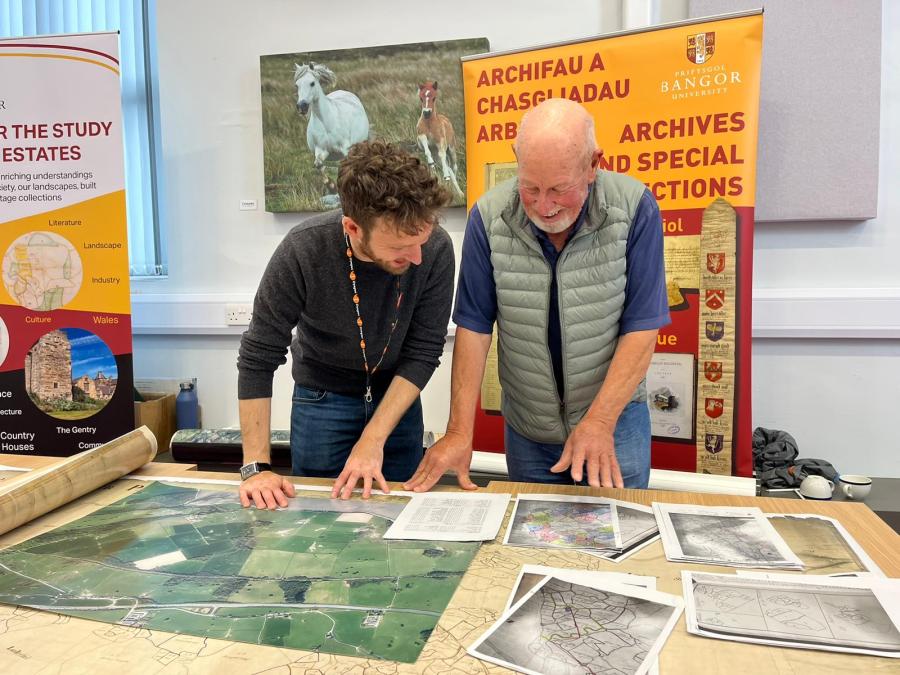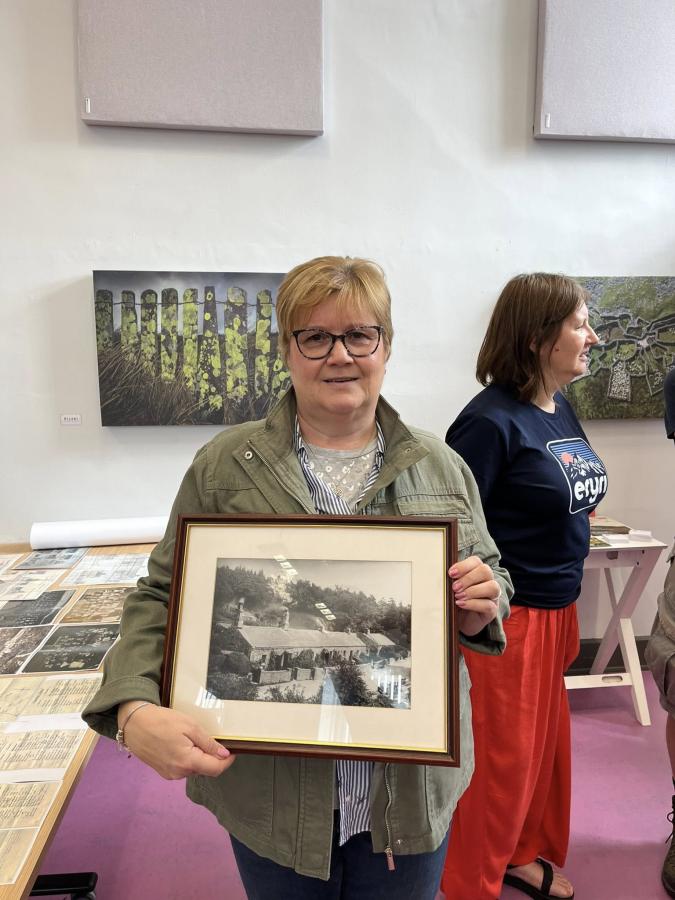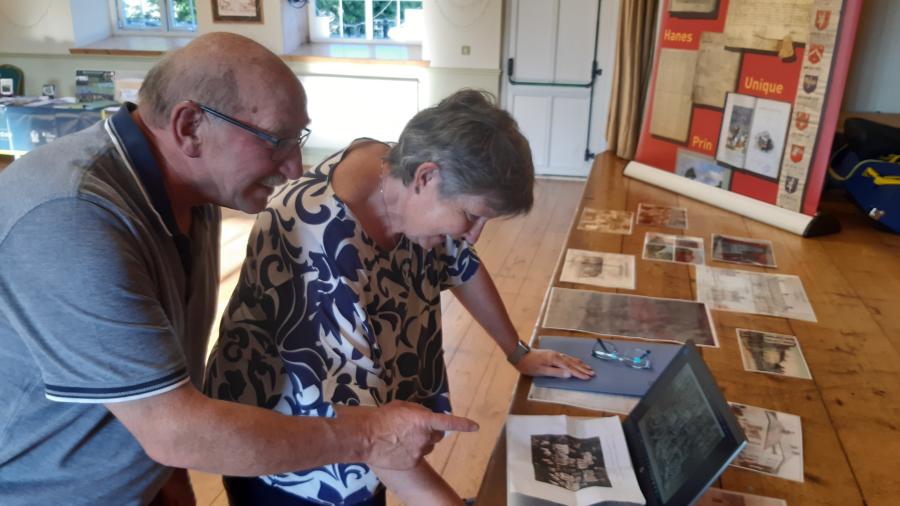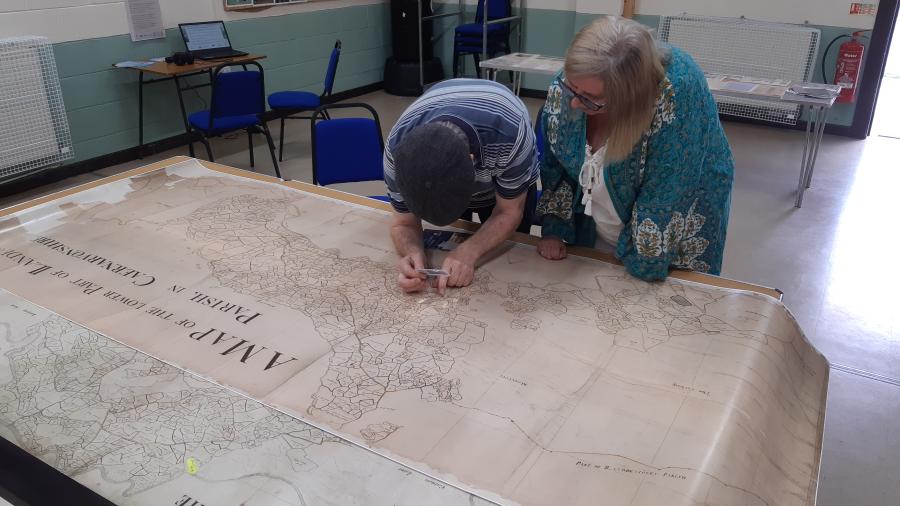Newid Eryri: People, Place and Perspectives on the Past and Future of Dyffryn Ogwen
The Newid Eryri project represents a profound initiative to foster community connections and conversations within Dyffryn Ogwen, building upon the foundations laid by Alex Ioannou's doctoral research. His initial ‘Newid Eryri’ exhibition at Pontio in summer 2024 sparked discussions on landscape change, cultural identity, environmental crises, and future visions for the area, using historical records and maps from Bangor University Archive and Special Collection. A key insight from his exhibition was the public's eagerness to share their own personal stories of place and landscape attachment, often bringing along family papers, photographs, and artefacts. This enthusiastic response led the project team to apply for an internal Bangor University Community Fund to create deeper connections and create opportunities to share knowledge. In this blog post, we hear from Alex about the success and outcomes of the Community Knowledge Sharing Sessions.
The importance of community collaboration
At its core, Newid Eryri sought to strengthen the University's relationship with the communities and partners in Dyffryn Ogwen to make a meaningful contribution to the future wellbeing of the area. The project brought together academics, archivists from Bangor University, as well as partners from the Carneddau Partnership, Partneriaeth Ogwen and Chester University to ensure held knowledge and resources were shared accessibly and communally. Crucially, the project committed to highlighting and upholding the expertise, knowledge, and viewpoints residing within the local communities themselves. From an academic practise these collaborative spaces aimed to demonstrate best practice in mutually beneficial public history and knowledge exchange, serving as a model for future university engagement initiatives. The entire project was conceived as the "start-point of a long-term collaboration".

Community Knowledge Sharing Sessions
In June 2025, the project hosted three community knowledge sharing sessions in Bethesda, Mynydd Llandygai, and Tregarth. These drop-in sessions, co-designed with Partneriaeth Ogwen, invited members of the public to engage with archives related to their local history. A unique aspect of these sessions was the invitation for attendees to bring along their own family heritage collections – from papers and photographs to artefacts – and make a record of them, enriching the shared historical tapestry.
The sessions were structured to facilitate an easy exchange of knowledge, memories, documents, stories, and perspectives on local histories, place attachment, and priorities for the future. They offered fully billingual activity-based opportunities where participants could reflected on, responded to, and raise questions about core local concerns, including subjects such as, climate change, housing, employment, biodiversity, tourism, and the Welsh language. Additionally, the three sessions were designed to link up with and amplify ongoing community heritage initiatives, such as ‘Lleisiau Lleol’, ‘Map Ogwen’, and the Carneddau Place-Names Project, further solidifying Bangor University’s commitment to local initiatives.

The creative dimension
The invaluable insights gathered from the Community Knowledge Sharing Sessions—the reflections, stories, opinions, artefacts, responses, questions, hopes, and concerns—were collated. These contributions then became the inspiration for new pieces of creative writing by members of Llên Mewn Lle.
The creative writing session, held in August 2025, was profoundly informed by the listenings from the sessions, the broader Newid Eryri project, and the personal connections of the Llên Mewn Lle group. Mentorship for the writers was provided by Alys Conran. A particularly engaging element was the inspiration drawn from a 1904 signature book, brought in by a local community member. Llên Mewn Lle group members were asked to bring their own objects, such as tools, diaries, photographs, or memorabilia, that reflected their personal or communal experiences with change in their landscape or community. During the session, they began to record their reflections and discussions on the pages of specially designed ‘signature books’.
These unique signature books are designed to embark on an individual journey throughout the community, starting with a Llên Mewn Lle group member and then passed "from hand to hand". This process invites a wider ecology of recording, where each new person encountered is invited to write, draw, or mark a representation of their own reflection, story, opinion, or message concerning past, current, or future change within Dyffryn Ogwen, in any language. The contents of these books will be connected not only by their binding but by the very place and community they represent.

Outcomes
This process-led and collaborative way of working alongside local people, partners aims to provide ongoing inspiration for new conversations and collaborative projects focused on place-based attachments, societal challenges, and pathways towards sustainable futures.
Beyond Dyffryn Ogwen, the project's successful approach to public history and knowledge exchange will be shared with university colleagues, aiming to inspire future community engagement initiatives and embed them within the university’s research and impact cultures.
The project will culminate in a celebratory end-of-project event in autumn 2025, where the community-informed creative responses will be presented and performed. An aim of the project to deposit the new signature books in Bethesda, possibly in the new Hen Bost Heritage Centre.
The entire project was managed within a total budget of £1,000 generously provided by the Bangor University Community Fund.

(Authored by Alex Ioannou)
